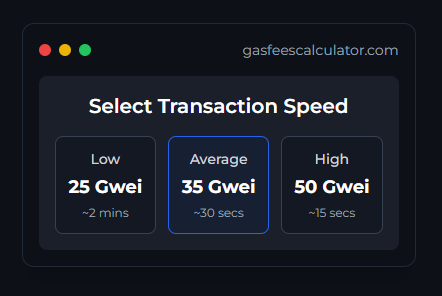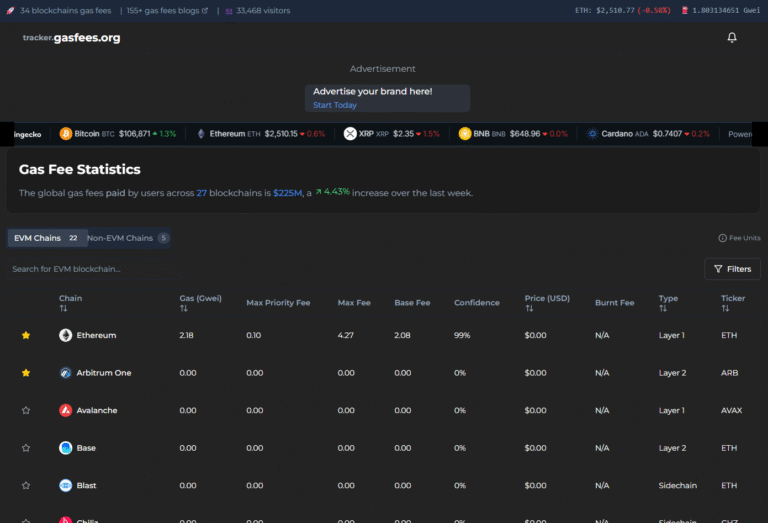What Are Energi Gas Fees?
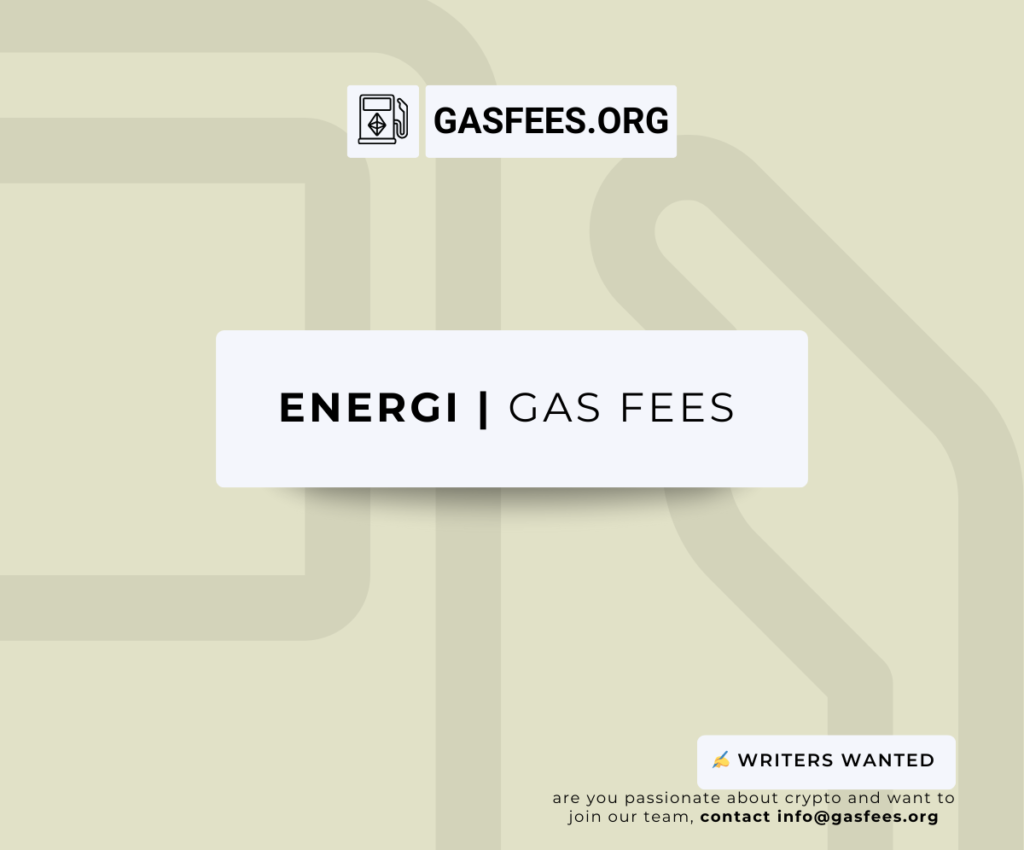
What Are Energi Gas Fees? Written By: Mr. GasMan Energi Gas Fees: Everything You Need to Know Imagine you’re driving on a busy highway, and toll booths keep traffic moving smoothly by collecting small payments. Gas fees on the Energi network work similarly—they’re the fuel that powers the blockchain. Let’s break it down so you […]
What Are Dogechain Gas Fees?
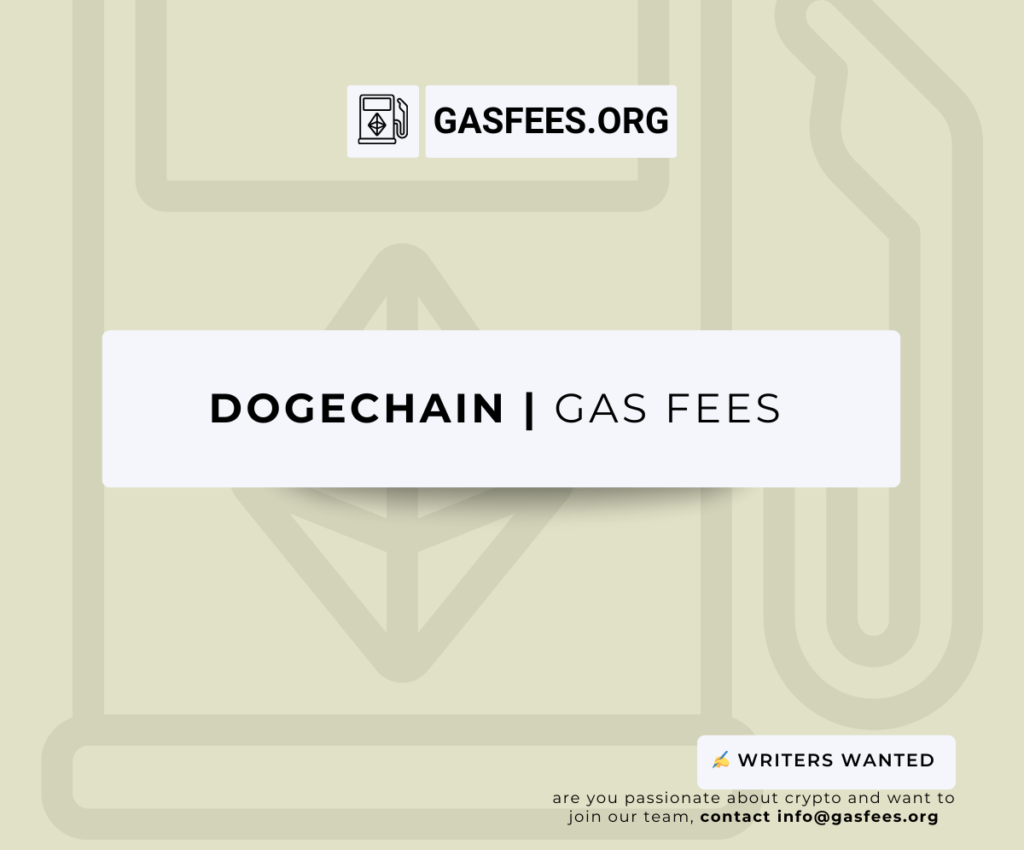
What Are Dogechain Gas Fees? Written By: Mr. GasMan Key Takeaways: Unlocking Dogechain with a Paw-sitive Understanding of Gas Fees Fueling the Dogechain engine: Dogechain uses gas fees, powered by wDOGE (wrapped Dogecoin) and DC tokens, to incentivize validators and secure the network. Dynamic gas prices: Just like a rollercoaster, gas fees fluctuate based on network congestion, transaction complexity, and wDOGE price. […]
What Are Canto Gas Fees?
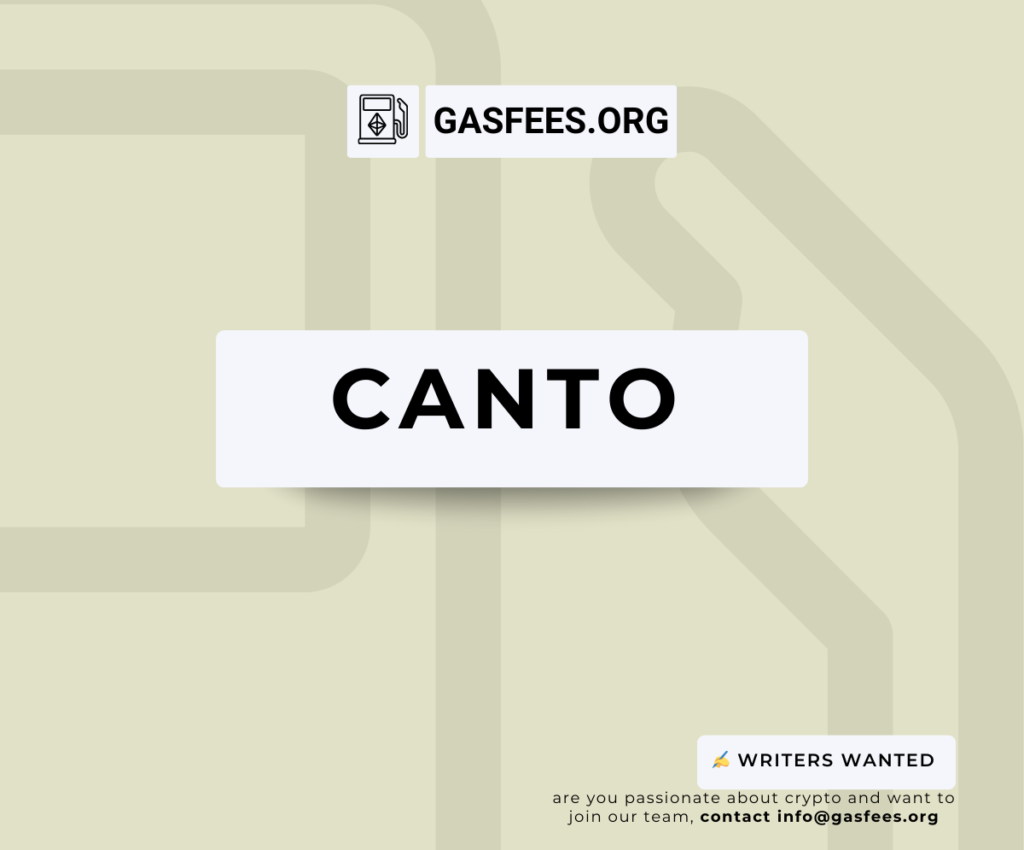
What Are Canto Gas Fees? Written By: Mr. GasMan Understanding Canto’s Engine: Why Gas Fees Exist Imagine navigating a bustling marketplace – buzzing with traders, contracts being signed, and deals struck. Canto, a vibrant DeFi platform, is just like that, but its fuel isn’t coffee, it’s gas fees. Think of them as tiny tolls that […]
What Are Boba Gas Fees
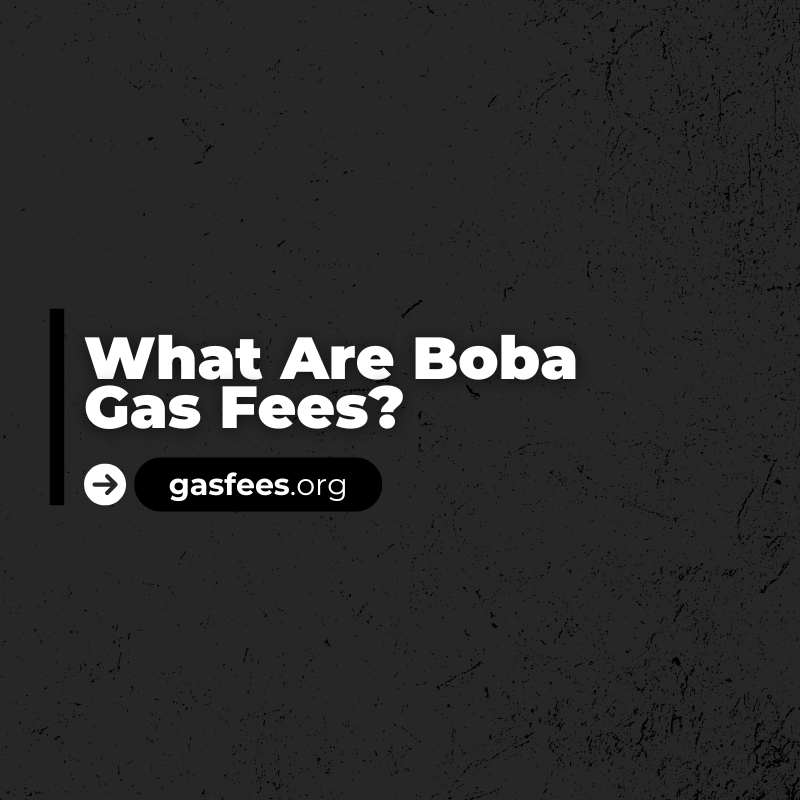
Boba gas fees are the transaction costs associated with executing operations on the Boba Network, a Layer 2 scaling solution built on Ethereum. Boba reduces Ethereum’s high gas fees and improves transaction speeds, making it ideal for decentralized applications (dApps) and DeFi solutions. These fees, paid in ETH or BOBA tokens, ensure the network’s efficiency and security. Understanding Boba gas fees helps users optimize their transactions and save costs when interacting with the network.
What Are IoTeX Gas Fees?
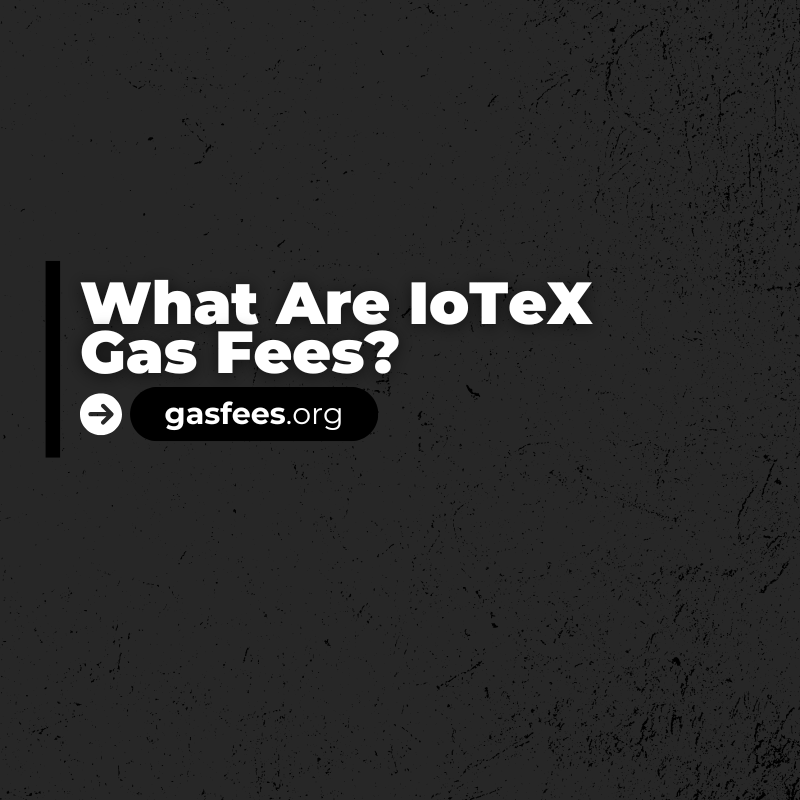
IoTeX gas fees are the transaction costs required to perform operations on the IoTeX blockchain, which is designed to support the Internet of Things (IoT) applications. These fees, paid in IOTX tokens, ensure smooth and secure transactions within the IoTeX ecosystem. Understanding IoTeX gas fees helps optimize costs while interacting with IoT devices and decentralized applications on the network.
What Are ZK-Rollups Gas Fees?
ZK-Rollups, or Zero-Knowledge Rollups, are layer-2 scaling solutions for Ethereum that bundle hundreds of transactions into a single proof, processed off-chain and settled on-chain. Gas fees for ZK-Rollups are significantly lower than Ethereum’s mainnet, often costing just a fraction of a cent per transaction, as they distribute the cost of a single layer-1 transaction across many users. Fees are paid in ETH or supported tokens and vary based on the rollup’s design, transaction complexity, and layer-1 gas prices.
For example, platforms like zkSync or StarkNet leverage ZK-Rollups to offer transfers as low as $0.01-$0.10, compared to Ethereum’s $1-$20. The fee structure depends on the computational cost of generating zero-knowledge proofs and posting data to Ethereum. Users can optimize fees by batching transactions or using rollup-specific wallets with real-time fee estimators. By slashing costs while maintaining Ethereum’s security, ZK-Rollups make DeFi, NFTs, and microtransactions more accessible, driving adoption in the Web3 ecosystem.
